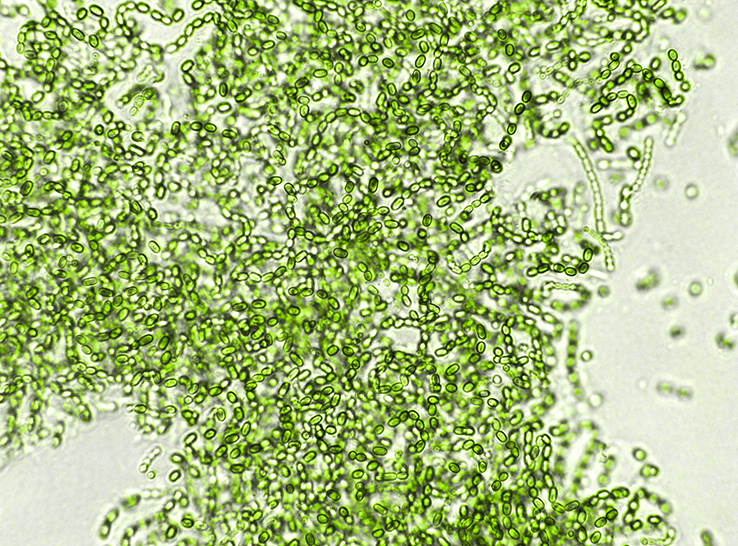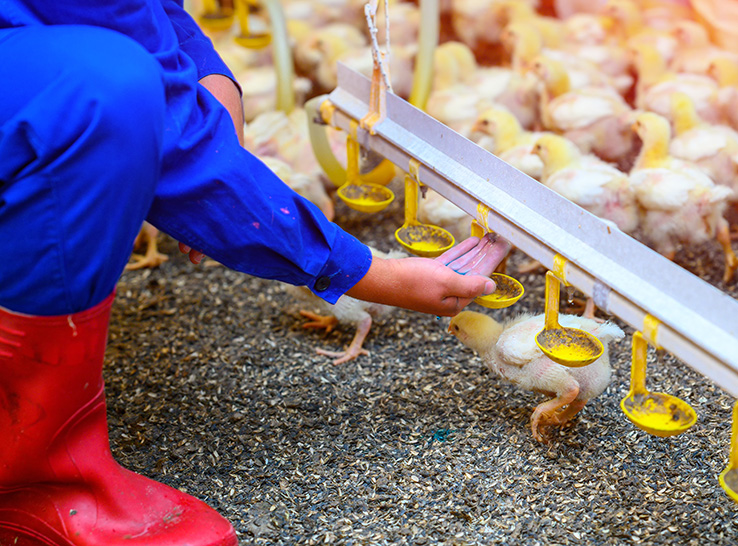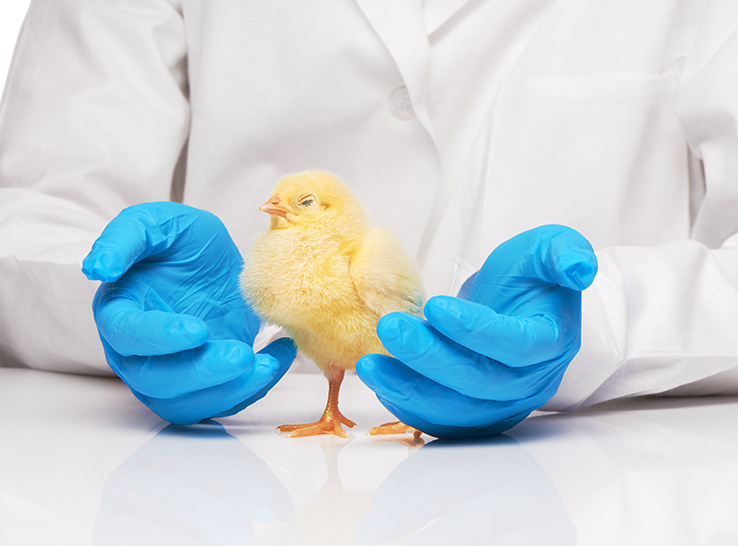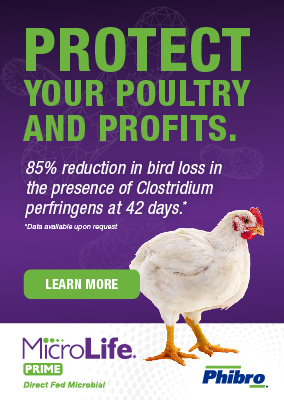Broilers fed a microbial supplement of four probiotic strains had a lower incidence of Salmonella and higher expression of proteins associated with immunity, according to research presented at the 2024 International Poultry Scientific Forum by Kevin Bolek, PhD, microbials innovation director for Phibro Animal Health.
MicroLife® Prime direct-fed microbial solution consists of four Bacillus species designed to help improve gut health and performance.
Scientists at Phibro Animal Health and Iowa State University randomly assigned 560 Ross 308 broilers into four dietary groups. There were two unchallenged groups: a control group with birds on a corn-soy diet and a group on the same diet supplemented with MicroLife Prime. They fed the two remaining groups the corn-soy and supplemented diets but challenged them with Salmonella Enteritidis by oral gavage.
The scientists measured growth performance up to 21 days of age and took cloacal swabs from 10 randomly selected birds from each of the Salmonella-challenged groups at 4 days post-infection for culturing. They also collected liver tissue from one bird per cage at 7 days post-infection for immune-related gene expression analysis using quantitative real-time reverse-transcription PCR testing.
Improved immune response
Seven out of the 10 cultures were positive for Salmonella in the challenged group fed a standard corn-soy diet. Notably, only four out of 10 cultures were positive for Salmonella in the challenged group fed the MicroLife Prime. Bolek stressed that this finding was a statistically significant difference.
Gene expression levels of interleukin-17 and interferon gamma — proteins associated with immune response — were most elevated in the challenged birds fed MicroLife Prime, he said. Interleukin-17 levels were significantly different between birds fed MicroLife Prime and those not fed MicroLife Prime.
During the study, feed intake and body weight gain (BWG) were significantly lower, and the feed-conversion ratio (FCR) was higher in the two groups challenged with Salmonella.
Multi-strain supplements as a tool
According to Bolek, the findings could have practical implications for a poultry industry grappling with the continual threat of Salmonella.
“Salmonella is a significant food-safety concern, and direct-fed microbials are increasingly used to help defend against challenges from the pathogen, as well as other pathogens that threaten production,” he explained.
“Multi-strain solutions like MicroLife® Prime direct-fed microbial contain multiple modes of action associated with improved gut health in birds. We were pleased to see signs of this in this study, which could have positive effects for producers in managing the ever-present risks posed by Salmonella in the field,” Bolek concluded.
Editor’s note: Content on Modern Poultry’s Industry Insights pages is provided and/or commissioned by our sponsors, who assume full responsibility for its accuracy and compliance.










